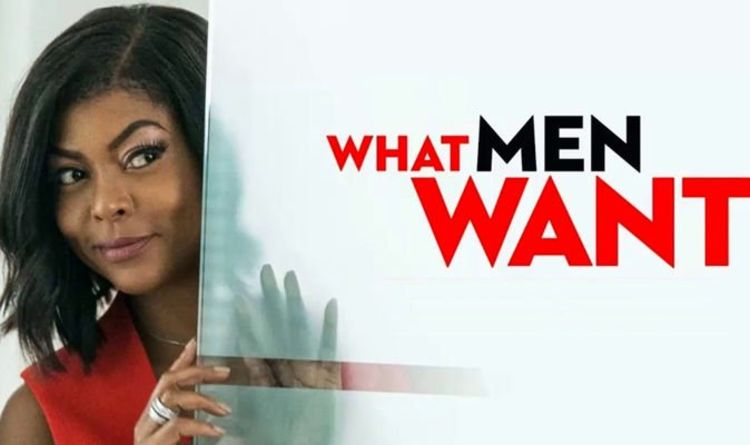Essentially, What Men Want was a movie following the life of a determined, if a little obnoxious, career woman who prioritises work over everything before learning the real value of emotional intimacy at the end. Classic, right? A story of love and the trials of being a woman with more opportunities than ever before, but more pressure than ever to choose between a fulfilling career and life as a wife and/or mother.
Early on in the film, the heroine meets a guy, and they spend the night together. During the encounter, she is extremely dominant. It’s fair to say everyone’s entitled to their preferences or kinks, but something about the scene really got to me.
Then I realised, it was rape. Despite more than a few protests from Will (Aldis Hodge) as she pushes his head down and covers his mouth, or continues on top of him in a rather aggressive and extremely self-serving manner, it is painted in a comic light. People surrounding us in the cinema were laughing- I even did at first. After Ali (Taraji P. Henson) is satisfied, she rolls over, taking the blankets, and completely ignores his presence.
The scene, while intended to show her ball-busting, independent side, is a little more literal in regards to the former than I think it should have been.
Suppose for a minute that their genders were reversed and the man was on top of the woman, pushing her head down and ignoring her protestations- the film would NEVER have made it to the cinema. The uproar would have been phenomenal. For the duration of the film no acknowledgment is made of the assault in this scene, and they end up happy and in love at the end. No film with a heroine who ends up with a man who did something like that to her would be celebrated as a ‘happy ending’.
This overt double standard got me thinking about whether anyone else had a similar reaction after watching the film, so I googled. But whether it’s because it’s a new film, or just because the comedy covers the crime, I found nothing. I did, however, come across a celebrity interview that I think is relevant here. How To Be Single is another film focused on the independence of the modern woman: at the end of the film the heroine realises she doesn’t need a man to be happy, nor does she need to be alone to prove that. She finds a happy balance, a fulfilling career, and good friendships to surround herself with.
In a television interview the actress who plays her, Dakota Johnson, and Leslie Mann who plays her older sister, are asked questions by a young, typically attractive male interviewer. They immediately ask if he is single, alert their colleagues on the sidelines to the ‘hot guy’, and continue to degrade him for the duration of the interview. Johnson asks him if he works out, and the two actresses giggle, deciding that indeed he does. They even ask him to unbutton his shirt; otherwise, they ‘won’t talk’. Again: a casual environment, the individual players laughing along with the events. But how would that play out if two male actors asked a female interview to unbutton her blouse? Not well.
One can only imagine how this man must have felt: such ideas surrounding what it means to be a ‘man’ in 2019 often promote a tough and perhaps unemotional facade.
I can only guess what this man would have experienced by way of ridicule – likely online and from those in his life – if he had reacted the way a female interviewer may have if an actor asked her to unbutton her top. If he had raised this double standard during the interview it would have been met with great criticism and people would likely question why any man wouldn‘t undo his shirt for two beautiful women. I imagine he would have been considered less of a ‘man’.
Many interviews with female celebrities have been cut short, the interviewer met with great animosity for asking similar questions. Often these were not even of the same level as this interview.
I am sure many women would agree that we have more opportunity and equality now than ever before, especially in our developed corner of the world. Misogyny is still a prevalent issue, but there is certainly more of an open dialogue about it now than twenty, fifty, or one hundred years ago. What accompanies this dialogue, in part, is a sharp focus on sexual consent between partners; with a specific bias towards educating men on this. What we see in both this film and interview, however, is an example of the same standards not being applied to women.
It is sad to me that the concept of a woman who pursues a fulfilling career, is independent, and tough, has to be associated with a level of dominance over the men in her life, an aggressive streak that promotes a new type of inequality. When will we stop putting people into boxes and categories? When will we view people as people and not as an extension of the stereotypes that come along with their sex?
These are only two examples, and this article only begins to scratch the surface. But how can we, as women, expect men to join the feminist cause if it is about objectifying men to balance the scales as opposed to promoting an equal footing all around?
Maybe once we work harder on the double standard, an unfortunate by-product of society’s progression and a turn in a backwards direction, we can begin to erode the stereotypes that come along with a person’s sex.

